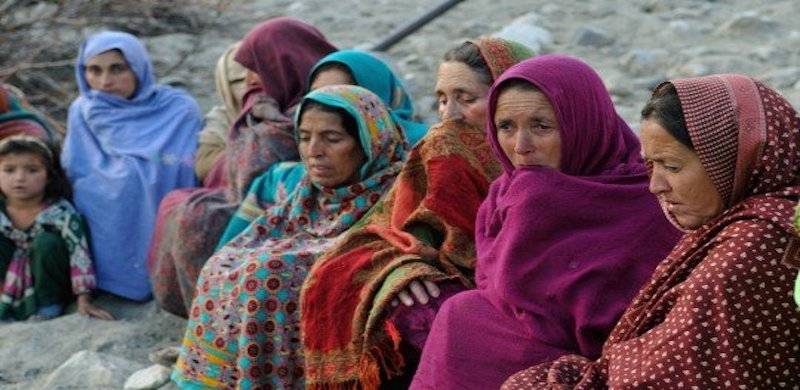
Women in Pakistan can certainly achieve a status equal to that of men in terms of socio-economic and political development, but road to this equality has certain formidable challenges. These hurdles can however be addressed through a number of strong measures.
Although it was a woman who laid the foundation of modern civilisation and human civilisation which ultimately gave birth to industrialisation, says Will Durant in his book, 'The Greatest Mind And Ideas', yet their socio-economic and political status is far below that of men in Pakistan.
When women started domesticating sheep and various other animals when while moving towards agriculture and plowing seeds and over the period of time, they became important for the sustenance of agriculture. It was then that men realised that if the control of agriculture by women may be a setback to a male-dominated system. Men then began taking interest in agriculture. And their roles and duties changed and women became subordinate to men over time. This continued subordination of women has drastically altered their lives and put them at risk today.
As she started domesticating animals, she also begun domesticating men. Thus, Will Durant has rightly said, "Sheep was the first animal to be domesticated by woman and man will be the last animal domesticated by woman". Women of Pakistan have also been domesticating Pakistani men due to the inequality that they face.
Gruesome domestic violence against women has become rampant in Pakistan today, which is very startling situation for the society as a whole. Recently, a mother of four kids, Qurat-ul-Ain, was murdered by her husband, Umer Khalid in Hyderabad. A few days back, a girl was raped at gunpoint by Usman Mirza in Rawalpindi. More recently, the daughter of former ambassador of Pakistan to South Korea, Noor Mukadam, was killed in a house in Islamabad. These facts conclude that lives of women in Pakistan are at stake because of her inferior and unrecognised roles and duties in our society.
Though there are numerous positive indicators of women equality to men in Pakistan, but road to this destiny is quite rough and tough because it poses myriad formidable challenges such as, gruesome domestic violence, disconnect between gender-related laws and their implementation.
Similarly, retrogressive interpretation of religion has sanctified gender inequality in Pakistan. Primitive gender norms are systematically conspiring against women empowerment. Socio-economic and political modernisation of men has paved the way for gender equality deficit in the country. Absence of unified feminist movement and gender as a social construct have hampered women to attain their equality to men in our society.
To bring a positive change, primitive cultural biases must be dispelled with rationality and inclusiveness in order to achieve equality. Provision of equal health and education facilities to women must be ensured. Economic marginalisation of women should be reversed to achieve economic emancipation. Political emancipation can go a long way in ensuring gender egalitarianism in Pakistan. A rational, moderate and humanitarian religious discourse can shatter the chains of women subordination.
Moreover, the disconnect between pro-women laws and their implementation needs to be bridged to address pervasive gender inequality in the country. Both men and women need to work towards achieving this equality.
